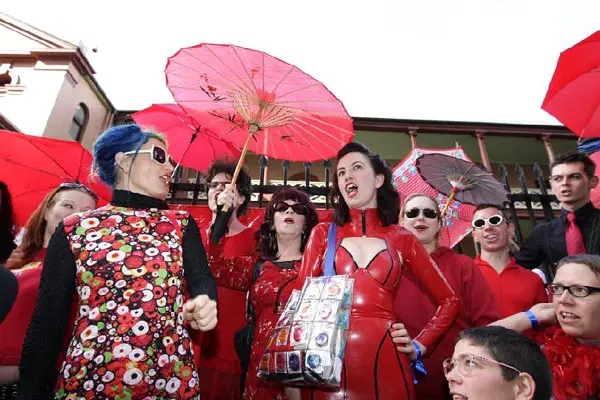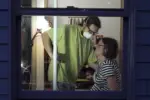Over the weekend, you might have noticed a disproportionate number of red umbrellas bobbing overhead, but you didn’t stumble upon a strange coincidence. Red umbrellas are the symbol for sex work all over the world, and last Saturday was International Whore’s Day (also known as International Sex Workers Day).
On June 5, 1975, a large group of prostitutes occupied a church in Lyon, France, resulting in the commemoration of IWD. The initial protest was in direct response to police abuse, inhumane working conditions and the criminalization of pimps.
In the years since then, IWD has continued to provide a space in which sex workers and sex work activists can be vocal about the inhumane working conditions and stigmas faced by the majority of sex workers.
During the present, the IWD protests are especially topical. The Senate recently introduced Bill 1693, also known as SESTA/FOSTA. According to Rolling Stone, SESTA/FOSTA masquerades as a bill which aims to cut down on sex trafficking by ensuring websites are held accountable for user content.
Unfortunately, although the bill claims to only target sites that deal with sex trafficking, the bill actually conflates trafficking with all other kinds of sex work. Instead of creating a safer environment for sex workers, SESTA/FOSTA has increased the risks associated with involvement in the sex work community.
As a result, sex workers who desire to share safety tips and stories with each other are experiencing more challenges than in the past. The bill also rendered it more difficult for sex workers to find clientele, thereby pushing members of the community back onto the streets and further into the darknet.
SESTA/FOSTA impacted the sex work community in an immediate and brutal manner. Meg Munoz, founder of the Southern California-based OC Umbrella Collective (and a survivor of sex trafficking herself), said in a Rolling Stone article “This was unlike anything we’d ever seen. The immediate impact was swift and, honestly, terrifying.”
Munoz said “We watched people literally walk back to their pimps knowing they had lost any bit of autonomy they had. We watched people wind up homeless overnight. We watched members of our community disappear.”
If you happened to catch one of the IWD protests on Saturday or Sunday, you’ll understand the incredible importance of providing sex workers with as much safety and comfort as possible.
In addition to dealing with the stigmas that surround sex work while simply trying to do their jobs, sex workers — especially trans individuals and people of color — now must fear for their safety and their lives due to the new legislation.
In 2018, state elections are occurring nationwide, providing voters with the opportunity to help eliminate the issue. If you don’t know your local and state candidates’ views on sex work and SESTA/FOSTA, now is the time to ask.
As stripper Antonia Crane said in a Bustle article, “Now is the time to show your support for sex workers because in the wake of SESTA and other legislation passed designed to target sex workers and our civil rights, every day something else is being ripped away.”
Vote to support sex workers and to bring the issue into the foreground of the national conversation.

















